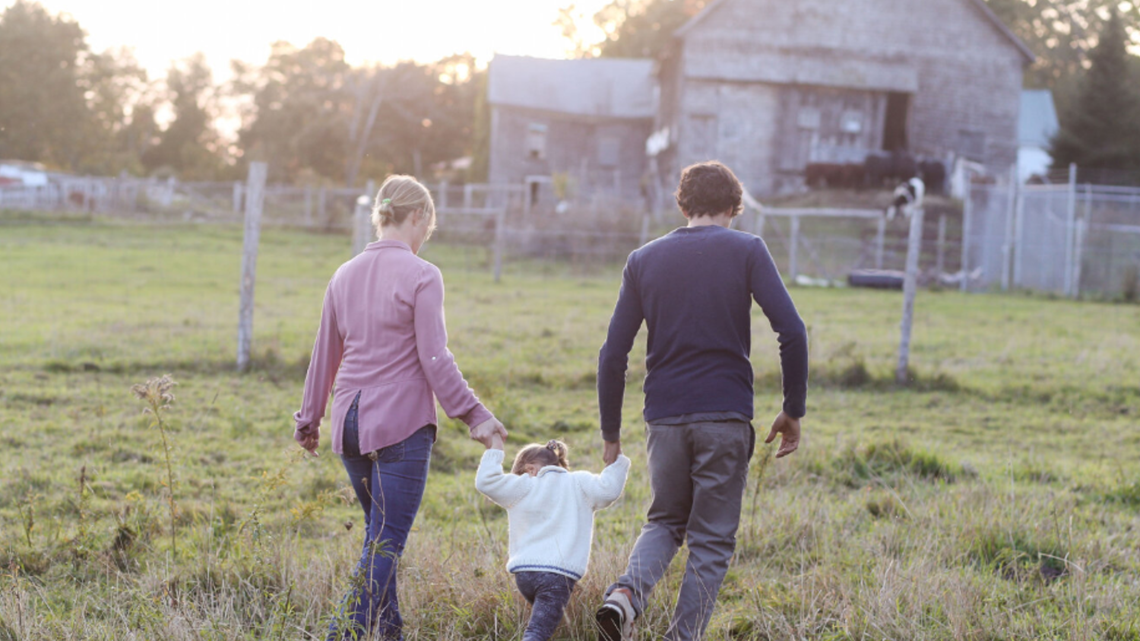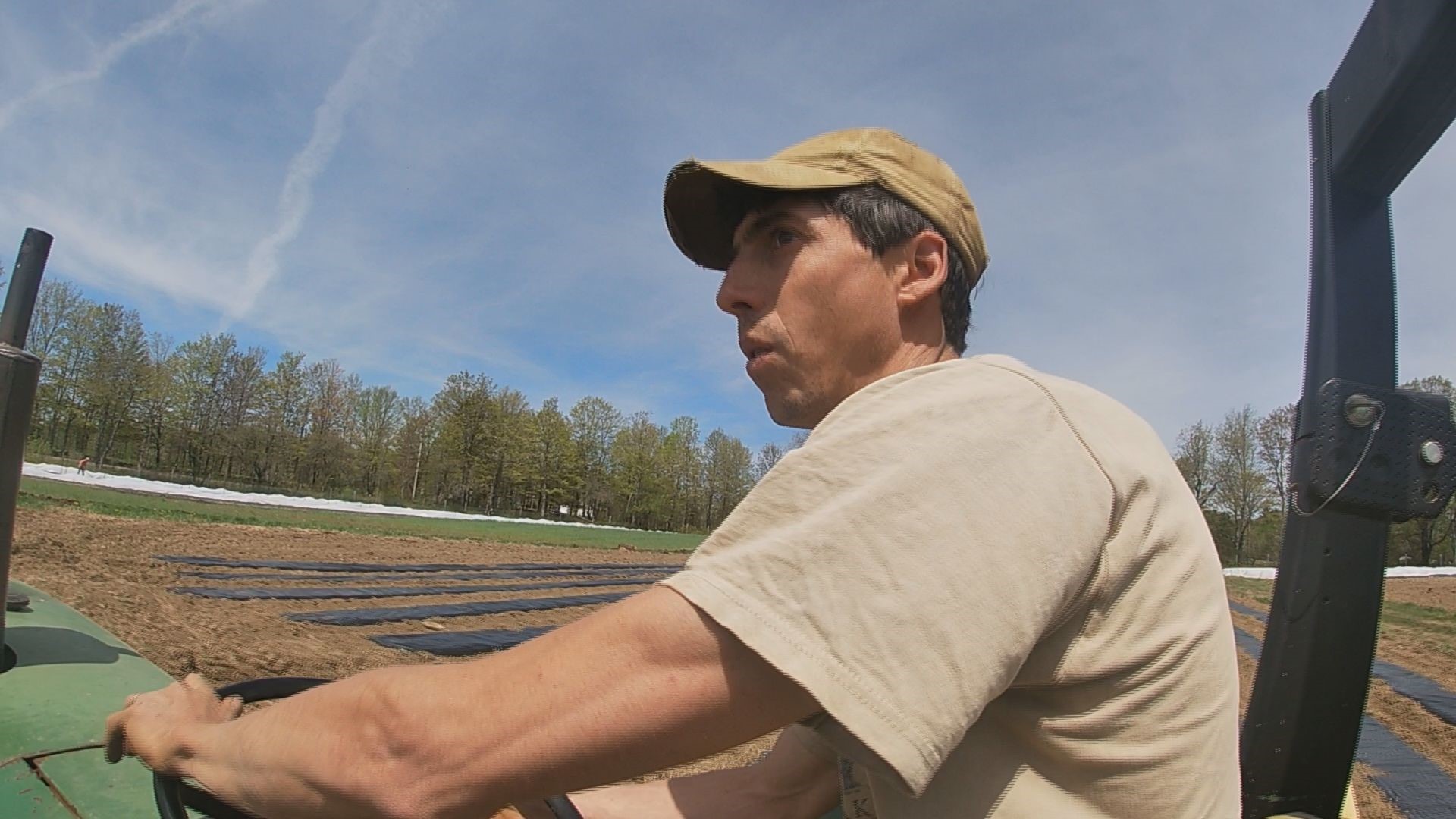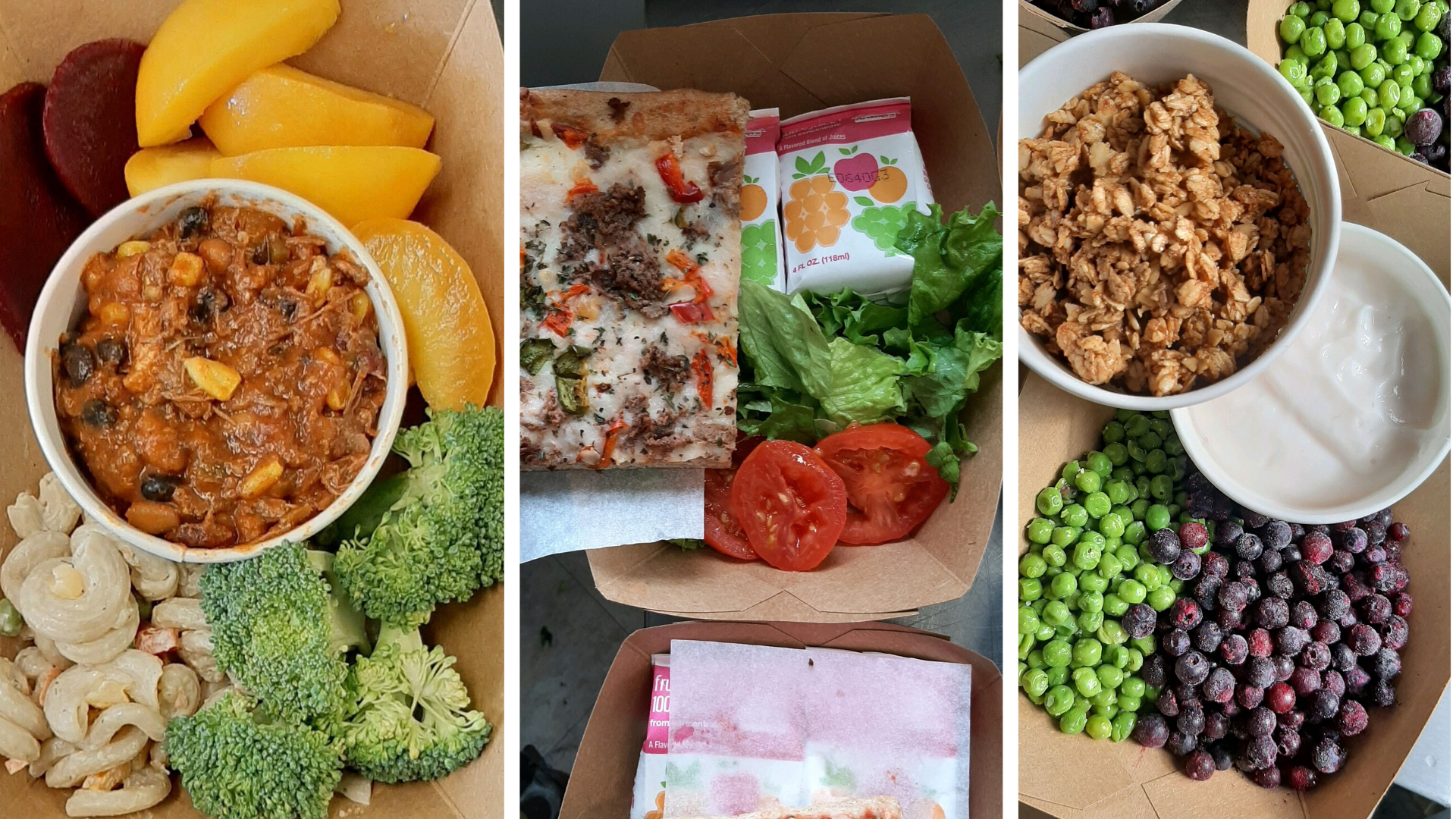PALMYRA, Maine — Farmers in Maine and across the U.S. can now apply for some of the $16 billion that has been earmarked by the U.S. Department of Agriculture (USDA) to assist producers suffering financial setbacks from the coronavirus pandemic.
While there are many farmers facing shortfalls, an uptick interest in local products is causing a boom for some smaller farms that are adapting quickly to the growing demand.
At Moodytown Gardens in Palmyra, they are reaping the—at least temporary—reward of the growing interest in local products. Although Johanna Burdett and her husband Jarret Haiss have lost almost half of the business they normally do, other areas of their business are booming.
The couple who have been farming for a decade, selling pasture pork, mixed organic veggies, flowers, and hay. Like so many others, Burdett was worried in mid-March when the business started to falter and other farmers around her were getting nervous.
"I felt like where's my stuff going to go and I was extremely worried," 34-year-old Burdett said.
But almost as quickly as the farm lost business, they gained new customers.
Burdett says more people are visiting their bright-yellow farmstand, buying into farm shares, and seeking out farmers' markets. She believes a heightened interest in people wanting to avoid grocery stores opting to shop outdoors instead is also helping.
The pandemic has changed many people's shopping habits offering a whole new clientele for some of Maines 7,600 farms.
"I personally would rather be outside with a lot of physical space and buy my food that has been touched by very few hands than going into some larger stores right now," Burdett said.
Moodytown Gardens is a small farm with diverse products. They don't have a lot of debt and don't rely heavily on restaurants to sell their produce and meat. This model is another reason Burdett thinks they are weathering the pandemic well... so far.


It's a similar story down the road in Augusta for another small farm, that is not diverse and up until a couple of months ago relied solely on restaurant sales.
"We grow boutique-quality gourmet mushrooms," Amanda Olson of Maine Mushroom Company said. And that is all they sell.
Amanda and her husband Andy had only been in business for less than a year when the coronavirus hit Maine in mid-march and they lost all of their restaurant accounts. But the couple who has no employees, except their three young teenagers, adapted quickly and began to find a different path to new customers.
They started offering delivery and added online ordering to their website. Orders started pouring in from natural food stores, farm drops, and individual customers, and their business has more than doubled.
A huge way for the Olsons to sell their fungus has turned out to be social media. Orders have been pouring in through their Facebook and Instagram pages.
"There's just been this huge explosion in the market of local people wanting local food," Amanda said.
"The pandemic is exposing weaknesses in our food system at every level," Ellen Sabina of Maine Farmland Trust explains. Weak points in the national food supply are evident on empty shelves at grocery store chains. But in Maine, Sabina says while it's great that many farms are seeing increased sales directly to consumers, there is more to be done.
"We also need to be working the next level to help more people access that local food and for farmers to sell more of their food," Sabina said.
Many farms still face uncertainty even if they are experiencing what could be a temporary boom in business and farmers have increased costs as they have to buy personal protective equipment and are now required to wrap all their products in single-use plastic.
At Moodytown Gardens, they are not only paying for plastic, they are housing their staff. Normally the Johanna and Jarrett employee a couple of people to work on their farm in the peak season. This year because of the pandemic they hired interns to live in their home to reduce exposure to the virus.
"The profit margin for farms is still looking pretty thin," Sabina said.
Sabina says right now is a time to work on local food infrastructure that will support a more resilient food supply, and that more grocery stores need to buy directly from farmers and processors are needed to that take farm food and turn it into something that is shelf-stable and has a longer life.
The Maine Farmland Trust is trying to support farmers because "we know that this won't be the last challenge," says Sabina.
Amanda Olson is unsure if the recent trend of buying local and directly from farmers will continue. But she's hopeful that it will turn into long-term behavioral change.
"We're building relationships now more than ever with people in the community and they trust us. When you get to know someone you can establish trust and trust is really important now when it comes to safety and health," Amanda said.
Johanna Burdett isn't so sure what the months ahead will bring or if she will be able to sell all her produce during peak season.
"I don't know what the future holds. I wish I did. I'm hoping that things continue in a positive manner but that's probably not realistic," Burdett said.
But either way, she's planting seeds that will hopefully grow to prepare for the challenges ahead.
Farmers can download the CFAP application and other eligibility forms from farmers.gov/cfap. Applications are being accepted through August 28.


